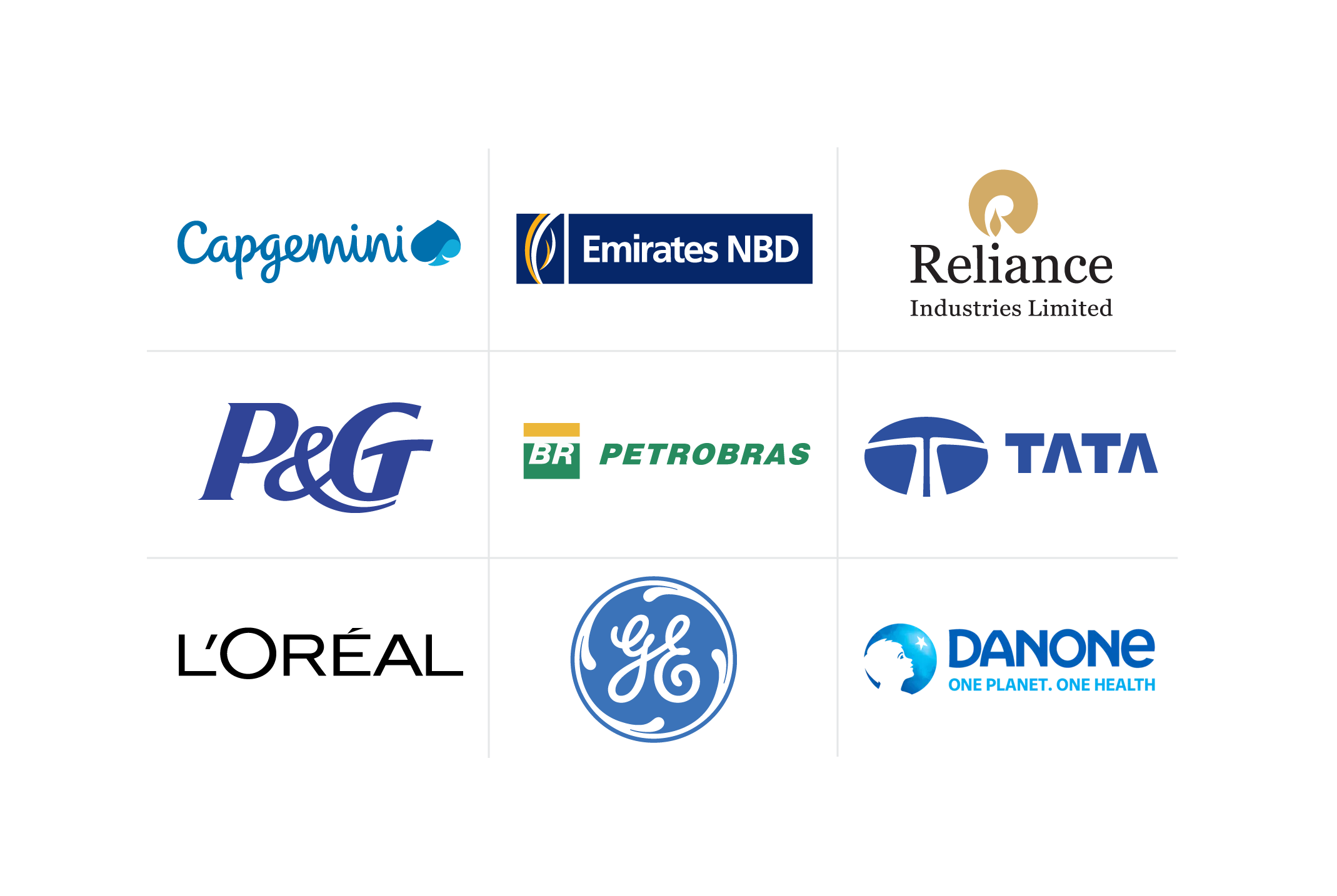Elevating Success Through Strategic Talent Operations: A Guide for Companies
Having a talent operations plan in place can help your organization attract and retain top talent in your industry. Explore what talent operations covers, careers in this space, and tips for effective talent operations.
![[Featured Image] Four members of the human resources team meet and smile as they successfully create the company’s talent operations plan.](https://d3njjcbhbojbot.cloudfront.net/api/utilities/v1/imageproxy/https://images.ctfassets.net/2pudprfttvy6/6QHwmRsMX1v9VcI9eHPrRi/e2dfc77d36330ea31aff6b928dc22162/GettyImages-1331917524.jpg?w=1500&h=680&q=60&fit=fill&f=faces&fm=jpg&fl=progressive&auto=format%2Ccompress&dpr=1&w=1000)
If your organization has effective talent operations, it is more equipped to recruit top talent for its workforce, minimize disruptions, decrease costs, and increase long-term productivity. Understanding the role of talent operations, including key components and benefits, can help you take advantage of this system and increase your organization’s success and sustainability.
Managing talent effectively can also improve your company’s overall performance because, according to a McKinsey & Company consulting firm survey, 99 percent of employees who answered that their company’s talent operations were extremely beneficial also said that their organization performed better than their competitors [1]. Discover the components of talent operations, careers in this field, and tips for implementing this successfully within your organization.
What are talent operations?
Talent operations involve strategic recruitment, hiring, and employee retention processes. When you recruit and hire a new employee on your team, the chances are you didn’t find the right candidate through luck alone. Companies often attract and retain high-quality talent through intentional talent recruitment strategies. This is where talent operations come into play.
Talent operations include your company's strategies to streamline new employees' hiring, onboarding, and development processes. Effective talent operations make the recruitment and hiring process more pleasant for your employees, leading to higher rates of role interest and acceptance.
However, the scope of talent operations goes beyond a candidate accepting the position. The next step is as important: Developing and retaining your employee talent. Talent operations accomplish this by continually facilitating positive employee experiences and development opportunities, ensuring your employees grow in ways that align with your organizational objectives.
What do talent operations professionals do?
Talent operations professionals are in charge of everything surrounding the hiring process, including identifying top candidates, monitoring candidate experiences through the recruitment process, and using data to inform better hiring practices. Talent operations professionals typically work in the background, ensuring everything runs smoothly and produces outcomes aligned with company objectives. Your talent operations professional would be in charge of tasks such as:
Implementing and managing recruitment tools and systems
Analyzing recruitment data
Creating optimized hiring practices
Developing new recruitment strategies
Facilitating a positive candidate experience
Predicting future talent needs
Interacting with multiple departments during the recruiting and hiring process
Organizing initiatives to retain top talent
Core components of effective talent operations
When building a talent operations plan, you might wonder where to start. Talent operations encompass various functions and processes, optimizing company decision-making at each step. Core components of an effective talent operations plan include:
Attracting top talent
To build a strong workforce, your company has to attract top talent. To do this, your company must seem like a desirable workplace. Talent operations professionals work on this in several ways, including developing an engaging employer brand and creating outreach strategies that connect your organization with candidates who are a strong match for the company. In general, an attractive company brand is linked to higher interest from potential candidates, giving your team more options for whom to hire into new roles.
You want to offer a strong employee value proposition to attract top talent. The employee value proposition is the employee's benefits from working for you. It includes compensation, development opportunities, and participation in your company culture, to name a few. To stand out to prospective employees, think about what your organization offers that is unique and desirable and focus on promoting these benefits.
Developing a solid talent pipeline
One of the differences between talent operations (or acquisition) teams and recruitment teams is that the talent operations team focuses on long-term sustainability. Talent operations identify candidates for current needs, anticipate future needs, and build a strong talent pool for when new positions open. This may involve identifying top talent with skills that align with longer-term company goals.
Talent operations engage these candidates early by pre-screening and interviewing them. Doing so creates a database of possible candidates for future expansion, ensuring the organization maintains a strategic, skilled workforce at all times rather than rushing to hire when new positions open reactively.
Picking the right candidates
When a new position does open, you need to be able to choose the right person from the available candidates. By placing talent in roles that suit their strengths and preferences, you can maximize employee potential and increase your business performance over time. In addition to a good skill fit, the person needs to mesh well with the company culture and collaborate productively with other employees.
Prioritizing effective employee training and development
Many modern employees value professional development opportunities. To retain talent in your company, you must provide the tools and guidance necessary for employees to advance toward their short- and long-term goals.
When bringing in new talent, you want to clearly articulate potential career paths and progressions within the company, including available training designed to help your employees meet their goals. One of the primary objectives of this is to increase employee satisfaction and engagement, building a motivated workforce that contributes to your company's growth over time.
One way you can utilize your employees' motivation, contribute to their advancement, and enhance your organization all at once is by offering them professional development opportunities such as the Achieving Personal and Professional Success Specialization offered by the University of Pennsylvania.

Implementing succession planning
For your company to remain competitive over time, you need continuity in your workforce. If one or several of your employees decide to leave (or retire), the departure won’t impact your processes significantly. Talent operations plan around what to do if key employees leave, which requires strategic recruitment and training to ensure similarly qualified candidates are available.
Improving existing processes
In any talent operations plan, you have several steps, each with its own processes and micro-processes. For example, suppose you are hiring a new candidate. While this might seem like one decision, it’s actually several. First, you have to decide how to advertise the job. It includes what the posting says, where you post it, and the information you request from applicants. You then have several processes for reviewing applicants, interviewing them, and deciding how to bring selected ones on board.
Over time, new processes become available, and you might find that older strategies aren’t producing the results you hope for. In talent operations, it’s your job to continually update recruitment and hiring processes to ensure an efficient, effective, and unbiased pipeline. If you don’t have a data analytics background, taking advantage of available recruitment software can ensure you have the insights you need to make the most advantageous choices in your role.
Careers in talent operations
Because talent operations encompasses many aspects of employee recruitment and engagement, this role can fall on one or several professionals. As a talent operations manager, also known as a recruitment operations manager, you’ll be in charge of processes from personalized candidate engagement to removing inefficient aspects of the hiring process while improving existing ones. Also, a talent operations manager earns a nice living because, according to Glassdoor’s June 2025 data, the average annual salary for this position is $83,576 [2].
Other roles responsible for one or several components of talent operations include talent acquisition specialists (including several sub-roles such as generalist, sourcer, and coordinator), hiring managers, interview panelists, and human resource generalists.
Tips for effective talent operations
While talent operations plans are essential for aligning your hiring practices with your organization’s goals, they vary depending on the industry and company objectives. As you build your talent operations plan, consider several tips to help you produce the best outcomes:
Take advantage of data analytics to implement strategic recruitment and hiring practices
Focus on the quality of attracted candidates over the quantity
Offer competitive compensation packages
Expand your talent pool outside of traditional candidates
Incorporate the most recent software and remove ineffective processes
Build an unbiased interview framework to engage and compare prospective employees
Provide growth opportunities for existing employees
Learn more on Coursera
Talent operations ensure your organization optimizes its recruitment and engagement strategy to find and retain top talent. As a talent operations professional, you will strategize and refine ways to attract top talent, create talent pools for future openings, and provide professional development opportunities to enhance employee satisfaction.
Attract frontline talent, support internal mobility, and prepare workers for in-demand, digital jobs with Career Academy from Coursera. Featuring a curated catalog of guided tutorials and projects focused on high-value digital skills and tools, Career Academy offers competitive career development opportunities with training programs from industry leaders like Google, Salesforce, Intuit, Meta, and Ashok Leyland, among many others. Explore Coursera for Business to learn how to provide the technology training your business needs to be competitive.
Article sources
McKinsey & Company. “What is talent management?, https://www.mckinsey.com/featured-insights/mckinsey-explainers/what-is-talent-management.” Accessed June 9, 2025.
This content has been made available for informational purposes only. Learners are advised to conduct additional research to ensure that courses and other credentials pursued meet their personal, professional, and financial goals.

